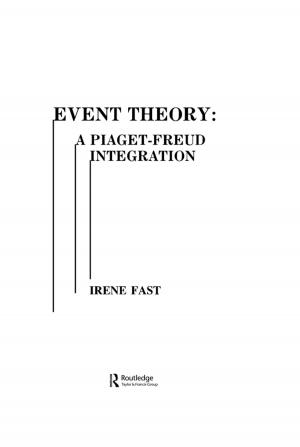New Methods in Social Justice Research for the Twenty-First Century
Nonfiction, Social & Cultural Studies, Social Science, Discrimination & Race Relations, Sociology| Author: | ISBN: | 9781317988823 | |
| Publisher: | Taylor and Francis | Publication: | September 13, 2013 |
| Imprint: | Routledge | Language: | English |
| Author: | |
| ISBN: | 9781317988823 |
| Publisher: | Taylor and Francis |
| Publication: | September 13, 2013 |
| Imprint: | Routledge |
| Language: | English |
This book provides a source of innovative theories and data for researchers grappling with social justice methodology and research methods in an environment constrained by funding agendas.
This book foregrounds and promotes creativity and imagination within a critical frame of reference to challenge the status quo. It invites people into creative spaces for thinking about and researching ‘the social’. With/in these spaces both the processes of social justice research (methodology) and the presentation of the research (re-presentation) are seen as being intertwined.
This book explores methodologies which include, but are not limited to: writing as inquiry; performance ethnography; emotional geographies; arts-based inquiry; autoethnography; evocative inquiry; reader’s theatre. This may include poetry, monologues, art, music, dance, and other creative mediums. Many of these methods are not new per se. What is new is the blurring of traditional research boundaries, for example between the social sciences and the arts, and the initial movement of these methods from the margins to the mainstream in the search for more successful ways to effect social justice outcomes.
This book was published as a special issue of the International Journal of Social Research Methodology.
This book provides a source of innovative theories and data for researchers grappling with social justice methodology and research methods in an environment constrained by funding agendas.
This book foregrounds and promotes creativity and imagination within a critical frame of reference to challenge the status quo. It invites people into creative spaces for thinking about and researching ‘the social’. With/in these spaces both the processes of social justice research (methodology) and the presentation of the research (re-presentation) are seen as being intertwined.
This book explores methodologies which include, but are not limited to: writing as inquiry; performance ethnography; emotional geographies; arts-based inquiry; autoethnography; evocative inquiry; reader’s theatre. This may include poetry, monologues, art, music, dance, and other creative mediums. Many of these methods are not new per se. What is new is the blurring of traditional research boundaries, for example between the social sciences and the arts, and the initial movement of these methods from the margins to the mainstream in the search for more successful ways to effect social justice outcomes.
This book was published as a special issue of the International Journal of Social Research Methodology.















